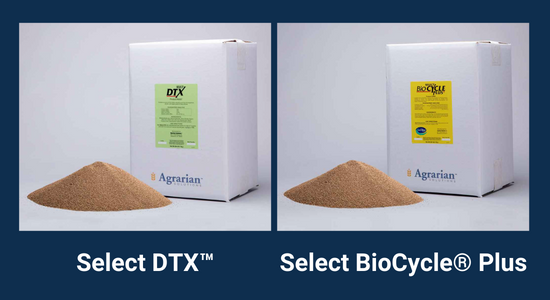Challenges of Turning Frozen Corn Plants into Corn Silage

Written By: Larry Roth,, Ph.D., PAS Vice President of Nutrition
Late-planted corn has a risk of frost or freezing damage before chopping and may experience challenges during ensiling and feed-out. For this article, frost will be termed as corn plants exposed to temperatures 30-32F, and a freeze will be considered as the plants experiencing temperatures less than 30F. Understanding in-field plant damage and fermentation characteristics will enable creation of a successful strategy for utilizing the resulting feed.
Corn plant maturity at frost or freezing is key for determining the extent of yield and nutrient loss, as well as the effect upon fermentation. Corn plants which are immature at frost or freezing will often have lower levels of starch than desired due to inadequate grain development, and consequently lower whole plant digestibility and energy content. Immature corn plants will have higher sugar content than mature plants.
Freezing temperatures result in plant cellular water turning to ice to expand and rupture cell walls, resulting in plant sugars being exposed for metabolism by molds and wild yeasts and then consequential tremendous growth of these undesirable microorganisms. Cool conditions may favor the growth of certain Penicillium molds and mycotoxin production. Corn silage laden with wild yeasts may experience reduced ruminal fiber fermentation.

Frosted or frozen corn plants may experience a reduced rate of field dry-down and be too wet for ideal fermentation, a slow decline in forage pH and excessive DM/nutrient loss. Warm temperatures after a freeze have occasionally caused a rapid dry-down and plants too dry for proper packing to exclude oxygen to restrict mold and wild yeast growth. If cold corn plants are chopped and packed in the storage structure, the fermentation will be slow and extended, or not occur at all, and high sugar levels will be present when the forage is fed. High-pH and high-sugar content corn silages may experience excessive mold and wild yeast growth during feed-out in the Spring when warmer temperatures return.
The Select DTX™ or Select BioCycle® Plus products from Agrarian Solutions are uniquely formulated with specialized L-form, or cell wall-deficient, bacteria to protect cattle from mycotoxins originating in the corn field or produced during storage. Further, in on-dairy demonstrations, the BioCycle Plus product has assisted cows in defending themselves against immune and inflammation challenges originating in improperly fermented feeds. Contact Agrarian Solutions for information on utilizing the DTX and BioCycle Plus products to develop feeding strategies for optimal cattle performance and health.
